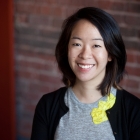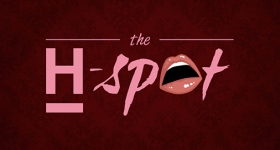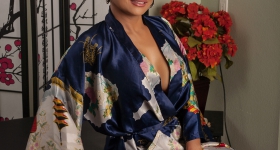One day five years ago, Kuping Pan’s 28-year-old daughter, Christine, came home wearing a quizzical expression. Christine had just visited a Vietnamese fortune teller who looked deep into her face and proclaimed: Your mother has five children.
Christine was puzzled. She knew her mother had been pregnant four times: with her older sister, her younger brother, herself, and a subsequent pregnancy that ended in an abortion.
“So I told her the story,” Pan says.
Pan had two abortions. The one her daughter knew about happened around 1979. The other one happened nine years earlier, in Pan’s hometown of Taipei, Taiwan, when Pan was 23. Her then-boyfriend (later husband) had just left for graduate school in Kansas, and she had recently graduated from college.
Abortions are generally accepted in Taiwan (where the procedure became legal in 1985), due in part to the stigma associated with unwed motherhood. “In Taiwan, if you’re unmarried with a baby, you cannot have your head up,” Pan says, observing a fact that has persisted even in recent years. “It’s a big issue to us. It’s better to have an abortion than to be an unmarried mother.”
Pan’s parents, both medical doctors and devout Christians, were disappointed but not enraged and swiftly arranged the abortion procedure. “In Taiwan, in church, we don’t talk about abortion [being] wrong,” Pan says. “I never had the impression that abortion is some big thing and you’re not supposed to do it. It’s not a touchy topic. ... People say ‘just go and do it.’ ”
Pan, now 62 and living in Thousand Oaks, CA, never second-guessed her decision. “It was not an appropriate time for me to be a mother,” she says matter-of-factly. “I never feel ashamed or [regretful] or anything.” It was such a minor footnote in her life, from a different era and country, that she didn’t think to tell her children about it.
Pan’s confident and almost nonchalant attitude about abortion resonates in the Asian American community, whose abortion rate rose 11 percent in the 1990s while rates fell for all other racial and ethnic groups.
While the decision to abort still involves emotional wrangling and not all who have made it are eager to discuss it, many Asian American women accept that the procedure may be necessary and prudent. Amid barbed national debates about abortion access — and despite religious ties, intergenerational communication gaps and taboos regarding sex (particularly premarital sex) — Asian American women are standing assertively behind their choices, and behind other women’s right to make that choice.
Women have had abortions for as long as they have had children. In fact, the oldest known medical text containing abortion techniques appeared in China over 4,700 years ago. Today, support for abortion is strong among Asian American women, even as it has recently waned in the American population at large. The National Asian Women’s Health Organization found that nearly 70 percent of Asian American women back the decision to abort; 90 percent support it in cases of rape or incest.
As support for abortion has risen, so has the rate at which Asian American women undergo the procedure. In 2000, about 35 percent of Asian American pregnancies ended in abortion, the second highest rate for all racial and ethnic groups behind blacks, and almost double the 18 percent rate for whites. In 2007, the most recent year statistics were available, 13,488 Asian Americans went to Planned Parenthood for abortions nationwide, and 5,494 did so in California alone.
Asian Americans are at risk for unintended pregnancies in part because their knowledge about sex remains pitifully low (which is curious, considering that Asian American teens start having sex later than other American teens). Clifford Yee, youth program coordinator at Asian Health Services in Oakland, CA, has been asked whether douching with Mountain Dew prevents pregnancy. Some women who participated in the California Young Women’s Collaborative, a sexual health program for college-aged Asian American women, were so enthused to finally learn about the subject that they hung speculums, a medical examination tool, on their dorm walls. A few were so inexperienced that they didn’t know what the withdrawal method was the program’s former research director Amy Lam says.
Unawareness about sexual health combines with risky contraception practices. The withdrawal method has been popular among Asian American women, who tend to eschew both hormonal birth control and consistent condom use.
“Lack of information for both parents and youth, paired up with lack of knowledge about local clinical resources, leads to unintended pregnancy” among Asian American women, Yee says. “They think they can have unprotected sex and not get pregnant. They don’t know that much about birth control and don’t know where to go to get it. It’s very typical.” And pregnancy is just one possible outcome: Among women of all racial and ethnic groups, Asian American women have experienced the highest rate of increase for certain sexually transmitted diseases like gonorrhea and chlamydia.
The problem begins at home, according to Lam, who has researched sexual behavior in the Asian American community. “When you come from a culture where your family doesn’t talk about sex, how can you talk to your partner about safe sex when you don’t have that role model?”
Linked to this point is that old chestnut, the model minority myth: Asian parents refuse to think their well-mannered, studious children are having sex. Yee remembers one angry mother who found her 15-year-old’s birth control pills and still claimed her daughter was too young to be sexually active. “There’s a little bit of stubbornness there,” Yee says. “Some parents truly don’t want to believe their child can be out there having sex.”
The children, too, internalize the parental expectations underlying that belief and go to great lengths — including abortion — to propagate the falsehood. Lam says, “In many Asian American cultures, it’s not the abortion that’s taboo; that’s a white thing. Having sex is [what’s] taboo. Abortions are the strategies used to cover up that you’re having sex. At all costs, you’re not supposed to have sex.”
Pan recalls little about her abortion procedure, except that it was night, she heard metal tools, she was anesthetized and felt no pain.
In Taiwan, estimates of the yearly abortion rate approach or even exceed the birthrate, which was 191,000 last year. Between 30 and 50 percent of Taiwanese women have had an abortion.
Legalization of abortion has not been as controversial in Asia as in the West. Most countries from which Asian Americans commonly emigrate from have either legalized abortion (China and India, among others) or only leniently enforce bans (Japan and South Korea, for example).
Some like Dr. Olivia Hsia would trace Asian Americans’ liberal views of abortion back to Asia. “One-fifth of the [Asian American] population is Chinese, and China is all for abortions,” says Hsia, a family physician in Fremont, CA, referring to China’s one-child policy and its other population control efforts. Hsia recalls a recent trip to Sichuan, China, where she was shocked that panda fetuses received round-the-clock nursing care. “To protect pandas more than human beings and encourage people to kill babies …,” she says. On that trip, Hsia was later impelled to print out scripture verses and distribute them at churches in order to discourage abortion.
A Hong Kong-born Christian who can quote the Bible prolifically, Hsia claims she was the near-victim of an abortion 57 years ago, when her parents doubted they could afford to raise a fourth child. “A missionary told my father that children are gifts from God,” she says. The same principle now grounds her refusal to provide abortion services.
Hsia sees herself as one of few advocates for unborn children. “There is a heartbeat and brain waves. All these things are features of an embryo. They have a life. Size should not determine whether they live or die. Should a toddler [be more entitled to live] than a 4-month-old fetus?”
She believes pregnancies should not be terminated even in cases of birth defect: “I’ve heard stories that people pray over their unborn child and end up delivering a healthy baby — the Lord heals,” Hsia says; or rape, “The child [should not be] doomed to die because of the sin of [the] father.” Acknowledging pro-choice arguments, Hsia says she too is in favor of choice: “The woman can choose the husband, where to live. But if you choose to kill another individual … you don’t have that choice. What about the choice of the unborn?”
Pan, on the other hand, is puzzled by and even dismissive of conservative attitudes toward abortion. While the US debate often fixates on abortion as “killing a life,” Pan says, “In Taiwan, they have more concern for the mother. Maybe she’s not married [and] she’s not supposed to have a baby. That would be a shame to her family and to herself. So abortion is a very natural option.”
Pan’s second abortion took place after she moved to the United States. It was the consequence of an unintended pregnancy following the birth of her two daughters, prior to her son’s birth. This second abortion was an open secret among her children.
For Pan’s youngest child, Wesley, learning later about her first abortion changed his perception of his mother. In general, he says “it is hard to imagine your parents as once being your age and going through similar situations that you are going through.” But discovering this information “made me realize even more that she too is human and was once young and made mistakes,” says Wesley, who calls himself “very pro-choice.”
Pan feels positive about her decisions, though she concedes that things may be different for younger women. “When you get to this age, over 60, you should be pretty confident about your life. Don’t feel guilty for your own choice. You should be in control of your own body.”
“Lucy” has developed a talent for crying discreetly. In 2004, when she found out she was pregnant, the 27-year-old Taiwanese American became adept at hiding her crying from co-workers on a daily basis. More recently, when we talk by phone, she begins to cry silently before I ask the first question. Fifteen seconds of silence pass, and I begin to wonder whether our phone line has been disconnected before I finally hear her speak again.
Lucy (not her real name) has a strong, clear voice and is upbeat, almost chipper, even when she cries. Once she has stopped crying, she tells me of her “incredibly happy” upper-middle-class childhood in Texas, with supportive parents, a flurry of extracurricular activities (band, dance, tennis) and tons of friends who kept her glued to the phone. Her college résumé included leadership roles in Asian American organizations and every internship she pursued. “I was on top of the world,” she says.
But Lucy was naïve. “I always wanted to help people, to be nice to people,” she says. “I didn’t have a backbone. I didn’t like saying no.”
She thinks her naïveté contributed to a bad situation that unfolded one October evening in 2004. She made plans for drinks with her best friend, a man she had known since junior high. Because Lucy is hypoglycemic — meaning she has unusually low blood sugar — she must eat regularly or risk fainting. She told this friend she was hungry and had to get dinner first, and he agreed. The next thing she remembers is waking up hung over in his bed with a sore groin.
As it turned out, “I got really drunk after he gave me one drink, promising me food after,” Lucy says. At the time, she was just beginning to understand alcohol’s effects on her hypoglycemia. “I had that weird feeling that something really bad happened to me.”
She demanded answers, and her friend apologetically admitted they’d had sex. Furious, Lucy extracted more details: He used a condom but it broke. They went through the trash so she could inspect the tear. A few days later, a pregnancy test came up positive.
When Lucy told him about the pregnancy, he brushed her aside. Lucy’s other best friend, a Catholic, pledged to accompany Lucy to a clinic, but never showed.
After that, Lucy was afraid to tell anyone. The majority of her friends were Christian (she is Buddhist), and she didn’t want to be judged or to make them choose between her and their religion. In fact, initially she dismissed the idea of an abortion, as she too felt that she had a life inside her, and she had always dreamed of having a large family (though not under these circumstances).
She mentally constructed various scenarios that might enable her to keep the baby without her parents finding out. She considered having a quick wedding with an ex-boyfriend who had extended a marriage offer, and raising the child with a “pretend husband.” She dwelled extensively on what she deemed the best solution: moving away and giving up the child for adoption.
But Lucy’s eventual decision to have an abortion hinged on one factor: “I needed an ironclad plan of action to ensure that my parents would never find out — ever,” she says. “I ultimately chose the path of least destruction and [least] shame for my parents.”
She went to Planned Parenthood, but was told it was too early to terminate the pregnancy. The day before the next appointment, she had a miscarriage in the middle of a family dinner.
“I had to put on a smile and act like nothing was wrong and just run to the bathroom every hour,” she recalls. “It felt like a knife was slicing through my stomach. I remember keeping a straight, soft face and shoving rice down my throat.”
The physical pain mirrored the emotional trauma she had endured during prior weeks when she was contemplating abortion. She had been “utterly lonely,” crying every day — “bawling, sobbing uncontrollably. I cried at work softly, staring intently at my monitor with tears dripping onto the keyboard, hoping that none of my co-workers would find out.” She had been tortured by the idea of “getting rid of a child in my stomach.”
Today, Lucy has come to terms with what happened to her, yet she still shies away from discussing the experience and from talking about herself in general. But it’s neither shame nor regret that holds her back. “I only like getting feedback from people who know what they’re talking about and won’t give me the sympathetic look and have nothing constructive to say. I don’t like the ‘I’m sorry’ response.”
Research shows that Asian American families rarely discuss sex — certainly less often than families of other ethnic groups do. According to a 1997 survey, one-third of Asian Americans in California never discussed pregnancy, STDs, birth control or sexuality in their households. More than half felt uncomfortable discussing reproductive health with their mothers and even more so with fathers and brothers. One study found that while 60 percent of Asian American women learned from their parents about abstinence, few gleaned any details about sexual health.
Researcher Lam says the discussion of sex among family members is just one aspect of the ideal multi-pronged approach to promoting sexual health awareness in the community. “One thing you do isn’t going to solve things — it has to happen on the cultural level, the policy level, the family level and the individual level. Culturally, how do we de-stigmatize [communication about sex]? Parents want to talk to children about sex but don’t know how.” Often the discussion goes no further than “Don’t do it,” Lam says. But, “that isn’t going to help your kids when they become sexually active. [It’s] going to take a long time to break those barriers.”
That change may not come soon enough: Teen pregnancy is much higher among American-born Asians than among Asian Americans born abroad. American-born Indian teens, for example, were 16 times more likely to have children than emigrants from India. Experts say more sexual freedom for second-generation Asian American youth may lead to higher future rates of abortion, unless effective contraceptive education takes place.
Lam stresses the importance of discussing sex in frank but age-appropriate ways to children early on. “In Asian cultures, even neutral sexual terms like body parts are taboo,” she says. For purposes of normalizing sex, then, the earlier you start the easier it is later on. “Otherwise, when they’re age 13, how are you going to explain what safe sex is? The learning curve is too high.”
Lam is well acquainted with the power of taboos: She got pregnant at age 18 but did not tell anyone for the first six months. “I was so ashamed,” Lam says. She had the child, although her staunchly Christian family encouraged her to have an abortion.
The sense that sex is forbidden remains deep-rooted today, Lam says, even among American-born Asians like herself and even despite the hypersexual tenor of American society. “It’s surprising to see how strongly our cultural notions around sexuality have held on,” she says, noting that cultural beliefs about sexuality can last for generations. “That’s how tight and ingrained in culture it is.”
Priscilla Hwang first learned about sex in third grade. Her mother plopped onto her desk a slim, four-volume reproductive health encyclopedia purchased at a garage sale. “She says, ‘Read this,’ ” Hwang says.
The books contained no photos — only scientific anatomical drawings — and large print intended for young readers. Hwang and her mother never discussed the books.
Hwang, now 31, has thought a lot about the lack of Asian mother-daughter dialogue about sex and sexual health, and about whether that rift complicates efforts to address those issues as adults. “It definitely made it complicated for me,” she says.
Hwang recently joined the Asian and Pacific Islander American Health Forum in Washington, D.C., as its associate director of policy. Before that she held a similar position at the National Asian Pacific American Women’s Forum, also in Washington, and has worked on reproductive rights for the past six years. She regularly addresses college students, sharing the details of her abortion. “But I still haven’t told my own family,” she says with an embarrassed chuckle. “It still makes me feel ashamed of myself because this is what I do.”
Hwang became pregnant by accident in 2003, at age 24, while living in San Francisco. She was not ready for a child. In addition to lacking money (she was an entry-level social worker) she had applied to law school and was set on going. She was also intent on hiding her sexual activity from her strict and conservative parents, both immigrants from Taiwan, who had raised her with the understanding that premarital sex was out of the question. Although Hwang is confident that her parents would have supported her decision to terminate the pregnancy, she thinks they would have been dismayed that she was having sex — unprotected sex, to boot.
Hwang had been with her partner, Alex Phan, only a few months, but he supported her fully, from showing concern for her physical and emotional health to helping foot the Planned Parenthood bill to bringing her water after the procedure.
Phan, now a 35-year-old systems engineer, says the decision to have an abortion was “instantaneous” for them both and that his primary worry was Hwang’s health. “Even an early-term abortion can be a very stressful, anxious and mind-altering experience for the male partner,” Phan says. “It’s also easy to shield yourself if you’re a man, simply because it’s physically happening to someone else.”
Both say the experience brought them closer. Today, they live together in a house they own in Takoma Park, MD, and hope to have kids someday.
Hwang remembers the procedure — she elected to have a medical abortion involving pills at home — as uneventful. “Basically laid in bed and watched movies all day,” she says flatly.
Afterward, she wondered how she, a smart and informed person who tries to do the right thing, had gotten into such a predicament — how she had let herself go for so long without using birth control or condoms regularly. “I was shocked with myself,” she says. “Because I knew [about] that stuff.”
She also reflected on her discomfort with discussing her own sexual health. Even in her early 20s, her face would turn red when her doctor asked about her sexual history (studies show Asian American teens are less likely to discuss sexual activity with their doctors than teens of other ethnic and racial groups). That disappointment with herself galvanized her to advocate for reproductive rights and health education.
Today, Hwang uses her experience to encourage Asian Americans to speak up. “I try to de-stigmatize and humanize the issue because sex and sexuality [are] taboo in a lot of Asian communities and Asian immigrant families, as they were in mine.”
As for talking to her own family, she says with a small laugh, “We’ll see”.
Lisa Wong Macabasco is Hyphen’s managing editor. She last wrote about parents’ reactions to the website MyMomIsAFob.com.










Comments